A Trip To Bangalore’s Historic Flower Market
By Keshav AnandWhether in rituals, prayers, birth, death, matrimony or medicine, flowers are ever present in Indian life. From offerings and hair braiding ornaments to Ayurvedic remedies and heady incense, flowers have been a part of the nation’s rich cultural history since the ancient times, and continue to serve a host of varied purposes from the functional to the decorative. The pandemic brought on great difficulties in India, like in the rest of the world, and along with the tragic loss of lives, negatively impacted many business sectors. However, the floriculture industry was one that still thrived, emerging as a survival method for many who left cities in a moment of reverse migration – when rural people returned to their villages to find alternative sources of income.
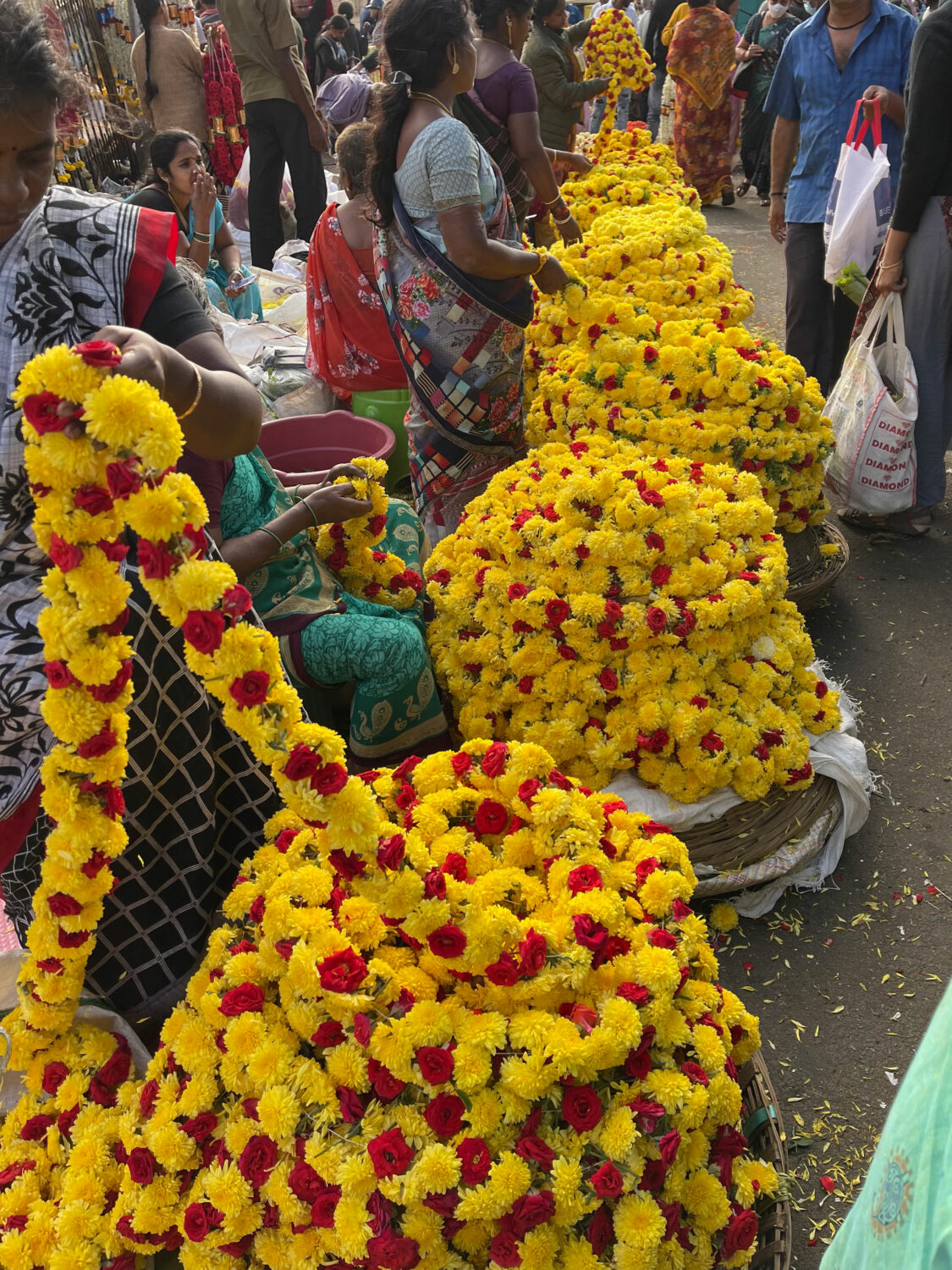
One of Asia’s largest flower markets, Krishna Rajendra Market, better known as KR Market, is a landmark location in the south Indian city of Bangalore. Approaching the cacophony at 6.30am on a cool Friday morning, market-goers frenziedly pile into busy streets leading to the central market building. Like a kaleidoscopic thumping heart with flower-filled arteries and veins, numerous roads and potholed paths are crammed with vendors selling every type of bloom and cut foliage conceivable. From architectural palm leaves and branches of therapeutic neem to unending strings of sweet smelling jasmine, cheerfully upright gladiolus and weighty garlands of marigolds and roses, the sight is momentarily overwhelming.
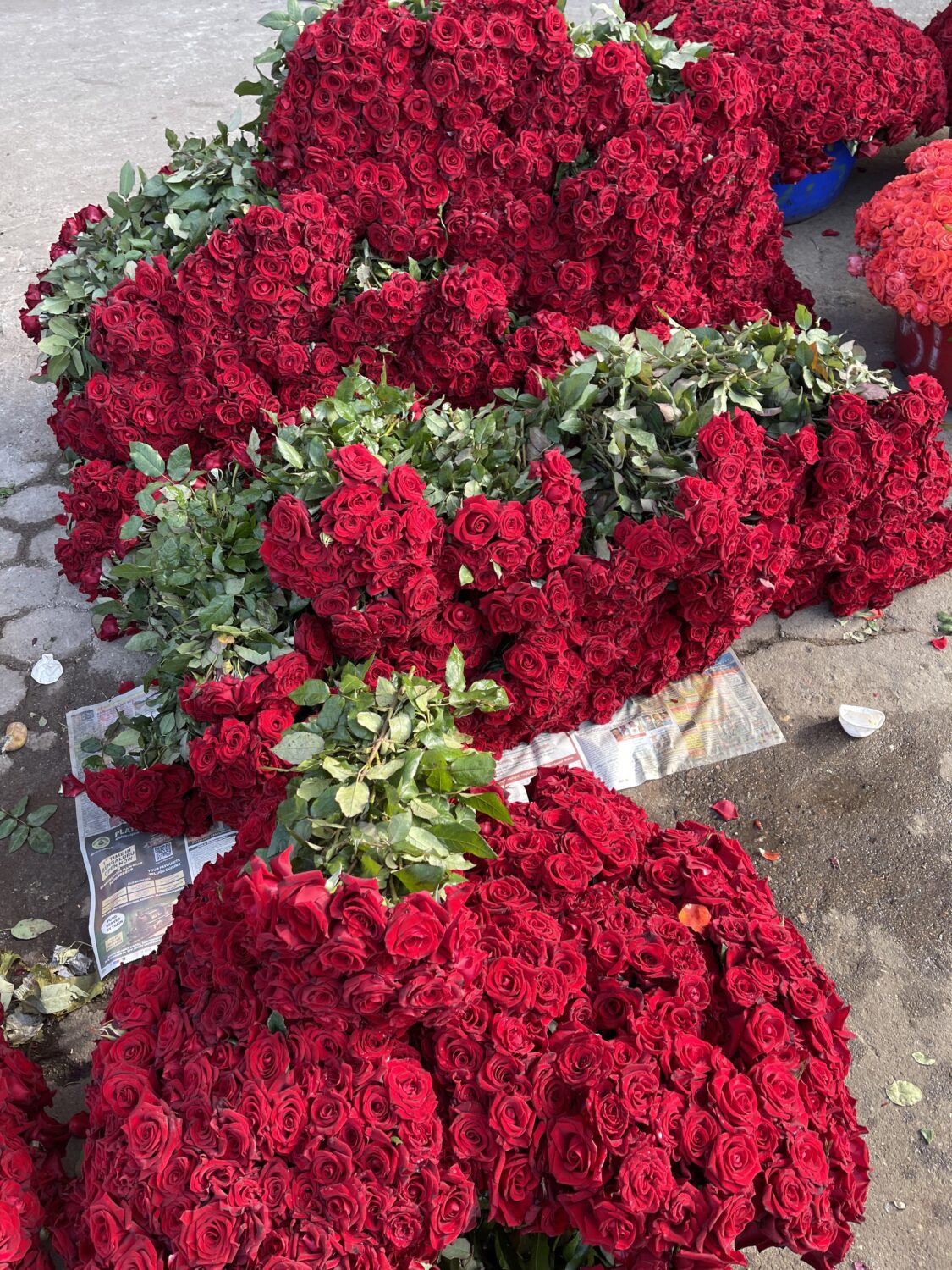
Celebrating its 100th anniversary last year, the market, named after Krishnarajendra Wodeyar, a former ruler of the princely state of Mysore, has unfortunately lost a lot of its lustre. A victim of neglect in recent times, the city’s oldest wholesale market was once a gem of Bangalore. Inspired by the architectural design of Calcutta’s Sir Stuart Hogg Market, the structure for KR Market was completed in 1921, a year or so after the construction began. It was an architectural beauty that housed an imported water fountain and played host to an annual contest for the best fruits and vegetables from the region. The red coloured structure, which originally comprised a row of large shops for vendors and a park outside with benches for visitors, has long been considered a site of historical significance in the city.
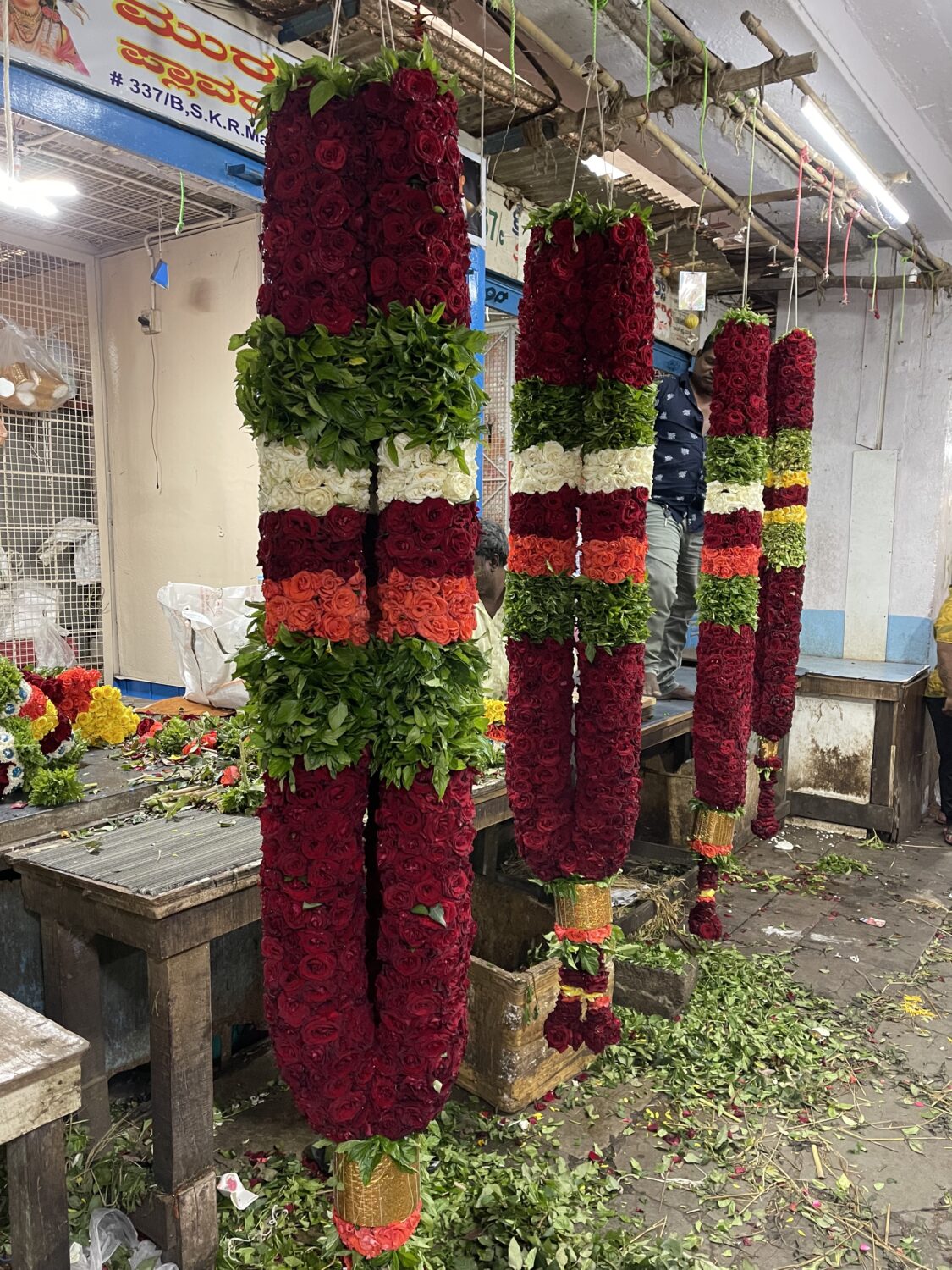
Back in 1790, the site where the market now stands was home to a kalyani, a waterbody called Siddikatte, said to have been created by Kempegowda, Bangalore’s founder, years earlier. Chronicled in the Kannada history book, Aduhnika Bengaluru, this waterbody was named after the ruler’s domestic help, Siddi, who met with a sudden and early end owing to illness. A bustling nucleus of the region since its inception, the land played host to a santhe, a busy weekly market that was held around the waterbody. While the kalyani was shuttered in the late 1850s, the place became an open ground that was soon taken over by provisional shops of fruit and vegetable vendors. Over the following years, the city’s municipality built temporary shelters for them and later, in 1914, decided to erect a full-fledged market on the land.
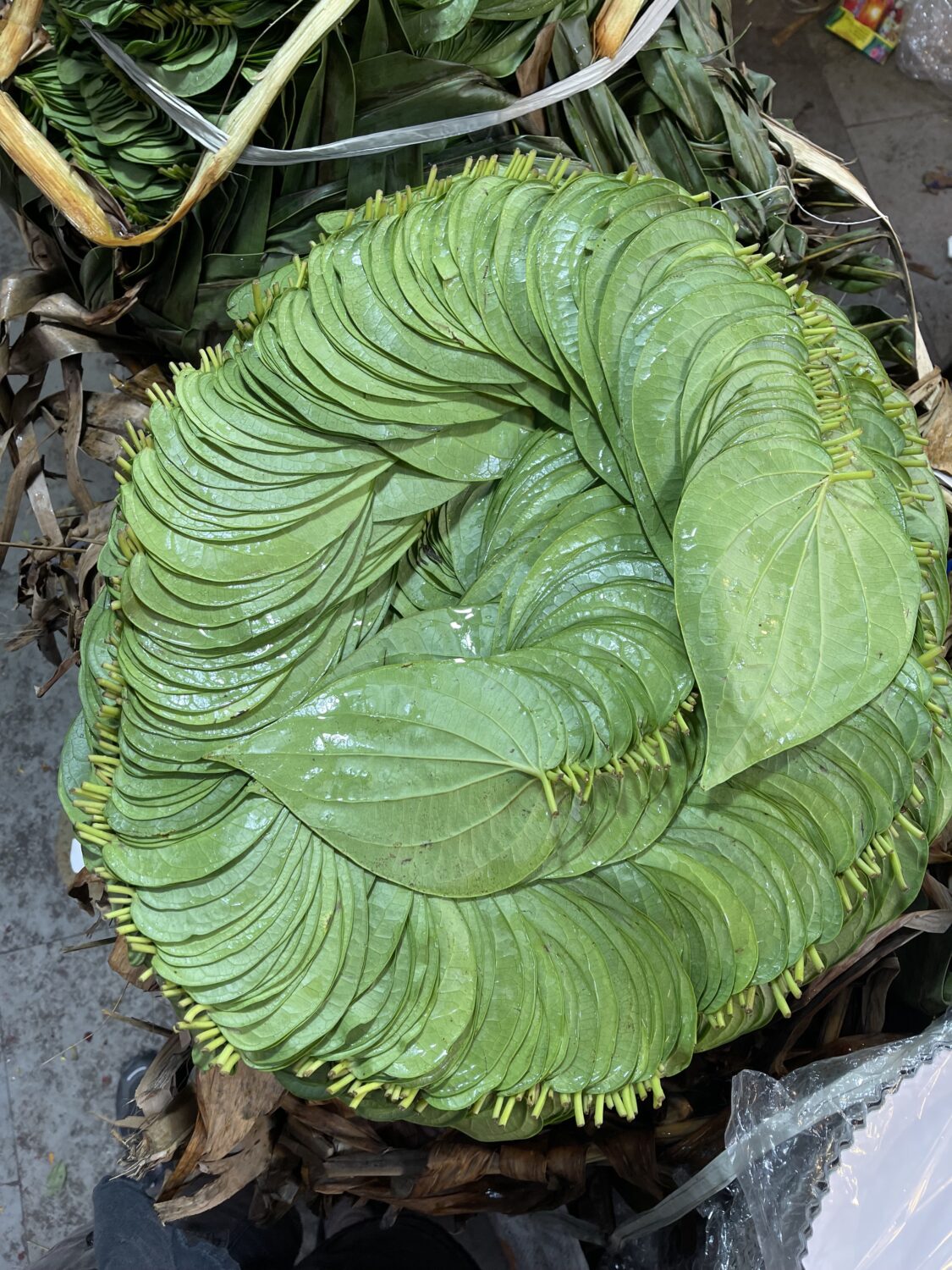
The market is located in the Kalasipalya neighbourhood, adjacent to the Tipu Sultan’s Summer Palace, on Mysore Road at its junction with Krishnarajendra Road. Today, from the British colonial era, two buildings remain, at the front and back of the market area. A concrete three-storey structure was constructed in the 1990s between the two older buildings to provide more space for vendors and better overall working conditions. As of 2022, the market is set to undergo a dramatic renovation. Its residents, many of whom have traded in the site for generations, along with the Indian National Trust for Art and Cultural Heritage (INTACH) and Institute of Urban Designers India (IUDI), are now fighting for a restoration plan that still acknowledges and celebrates the original market complex’s heritage, lobbying for a facelift rather than a complete demolition.
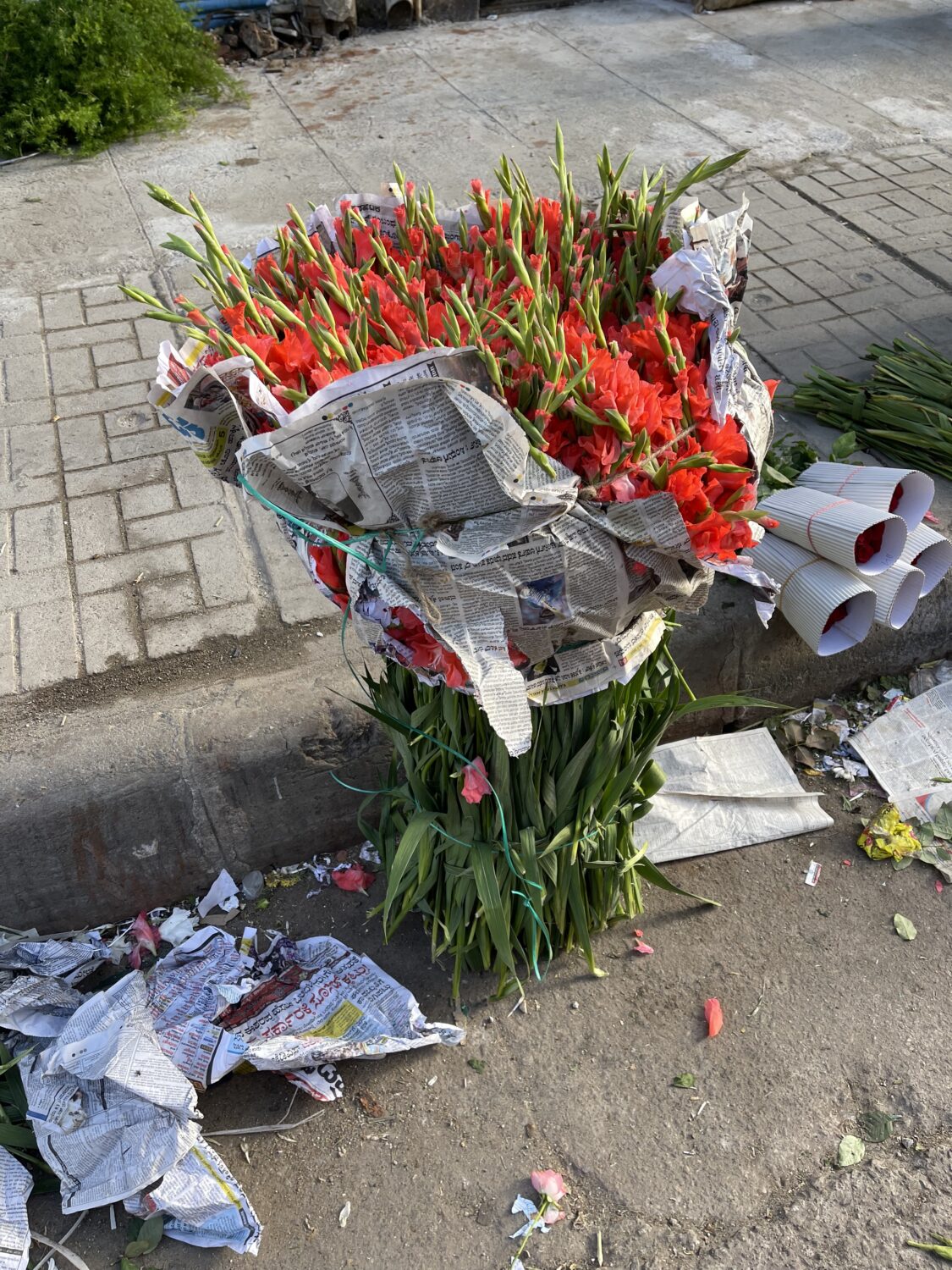
KR Market — Sethu Rao Road, Chickpet, Bangalore, Karnataka 560053, India